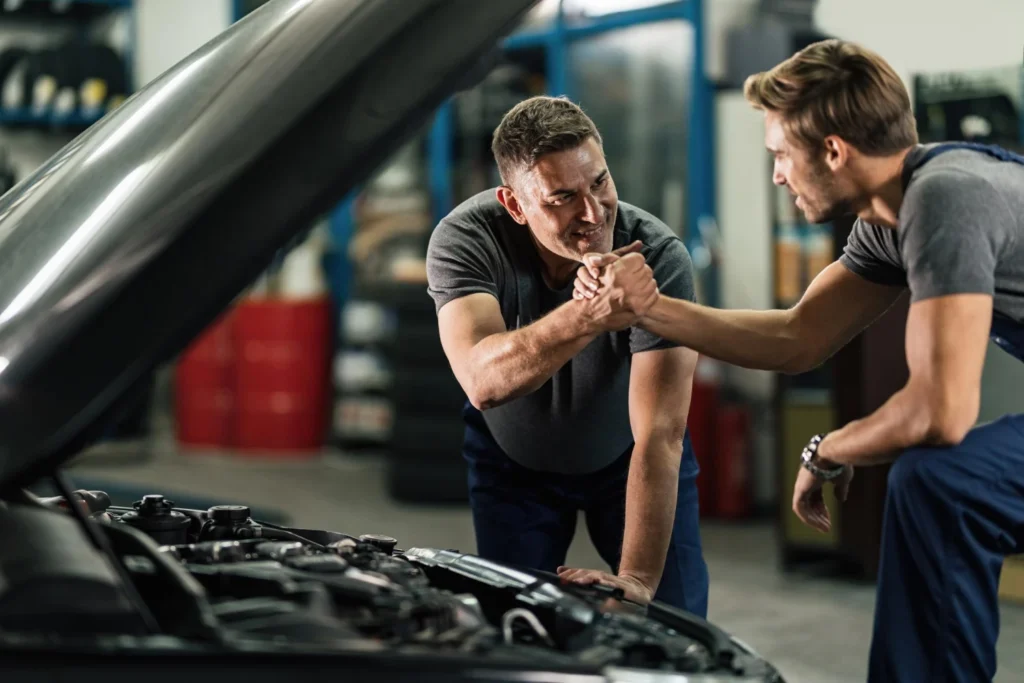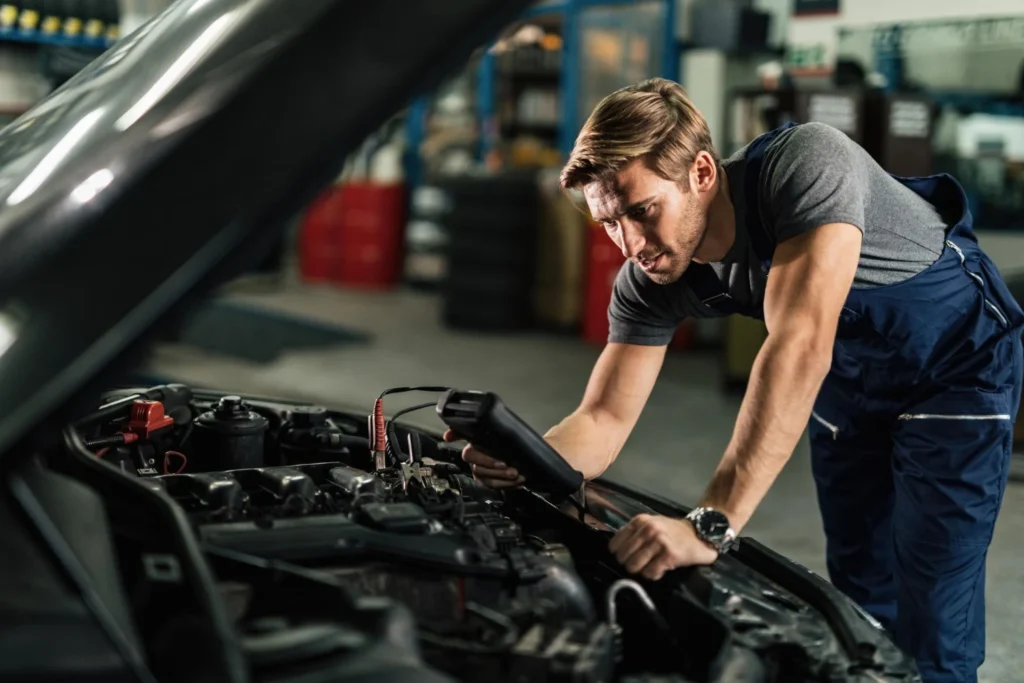Your vehicle’s radiator is the most important component of your engine’s cooling system. This mechanism is responsible for the maintenance of your engine’s temperature while it is in use. While your engine is running, a number of moving parts produce a large amount of friction. The friction, together with the burning of fuel, produces excess heat. When a problem arises in the cooling system and it can no longer regulate the heat, you could be stuck on the side of the road with steam coming out of your hot engine. In such cases, visiting a reliable mechanic houston can help you quickly resolve the issue and protect your engine.
To be more specific, engine parts can melt or fuse together and thus result in the total engine failure. To prevent this, you should get your cooling system serviced every time you take your vehicle for routine maintenance. By sticking to a preventive maintenance schedule and doing the maintenance of the radiator before it is needed, you can be sure that it will always function properly and save yourself from more money and problems in the future. Most European cars are designed to operate in cold weather conditions. That’s why you should be more careful with them when it comes to radiator maintenance. That’ ‘s why you should always rely on any reputable European auto repair services to get your radiator serviced.
If you’re searching for ‘auto repair near me,’ we’re here to help — book your service today.
How Does a Radiator Work?
The radiator is a big square which has coils located at the front of the engine compartment right behind your vehicle’s grill. Inside the radiator, there is the engine’s coolant, also referred to as the antifreeze.
The two words are frequently used in the same way but they are actually referring to the same thing. The coolant mixture is a combination of 50 percent coolant and 50 percent water.
This liquid prevents the water from boiling at temperatures up to 275 degrees Fahrenheit and freezing at temperatures as low as 30 degrees Fahrenheit.
The radiator itself is not a computerized part but it is controlled by a thermostat that is close to the engine and it measures the current engine temperature.
The engine will start to get too hot and the thermostat will enable the radiator to send the coolant through the engine.
The coolant, when it goes through the engine, it absorbs the extra heat and then goes from the engine to the upper radiator hose and then to the radiator.
The big surface area of the radiator aids the coolant in lowering the temperature as it circulates through the radiator’s coils.
The air that cools down the car gets to the liquid through the front grill and thus helps in cooling the liquid too.
After the coolant’s temperature has been lowered to the correct temperature, it goes through the lower hose of the radiator again, back to the engine, and the cycle is the same during the whole time the engine is running.
What is the Way to Prolong The Functioning of Your Radiator?

Radiators used to be made from metal and they usually lasted longer than the vehicle. Presently, in the majority of the modern vehicles the radiator is made mostly of plastic.
In modern cars, a well-maintained radiator would typically last for 8 to 10 years.
There are a couple of things you can do to help your radiator last as long as possible:
Proper Levels Of Coolant
The first thing to do is to keep a watch on your vehicle’s coolant level. The engine should always be filled with the correct amount of coolant before you start to drive.
Coolant can get out of the radiator when it overheats or through leaks in the cooling system. If the level goes down too much, the liquid will get too hot and overflow, thus, resulting in the radiator and the engine being damaged.
It becomes more crucial to keep the coolant at a proper level during the hot months or when you are about to drive on a long trip. In both of these situations, your car becomes more likely to overheat.
Regular Radiator Flush
The other key aspect of the life of your radiator is to have a coolant flush regularly. This service drains the old coolant and eliminates the particle buildup within the radiator to prevent clogging.
The lack of regular radiator flushes will lead to the buildup spreading throughout the whole cooling system.
Thus, such a phenomenon can result in the system parts being damaged and not being able to work efficiently.
Upon completion of the flushing process, new clean coolant will be put in.
For sure, the frequency of radiator flushes depends on the type of vehicle. The frequency of this event can be from once a year to every 2-3 years.
For the drivers who drive a lot or the cars that are always in tough driving conditions, extra flushes might be needed.
Look for the car owner’s manual to find out about the suggested number of coolant flushes.
Besides, your mechanic can also assist in advising you on what is the best for your car.
Get Radiator Leaks Repaired As Soon As Possible
You could have a leak in your cooling system if you see that the vehicle is always low on coolant and has to be topped off. Leaks can be the result of the radiator or one of the hoses.
It is essential that you immediately take your car to a professional mechanic when you spot a potential leak.
Indications that Your Engine Is Beginning To Overheat
- The temperature gauge of your car has increased very fast, and now it is in the red or “H” range.
- The steam, which can be seen as smoke, is coming out from the hood.
- Quickly reduced engine power.
- Thumping sounds are produced by the engine of the vehicle.
Takeaway
The engine is the heart of a car as it provides the power to keep the car running. However, there are a range of important components that play a crucial role in the proper working of the engine.
The radiator is one of those important parts. To get your radiator serviced today, contact Erics Car Care at 713-667-9293.

